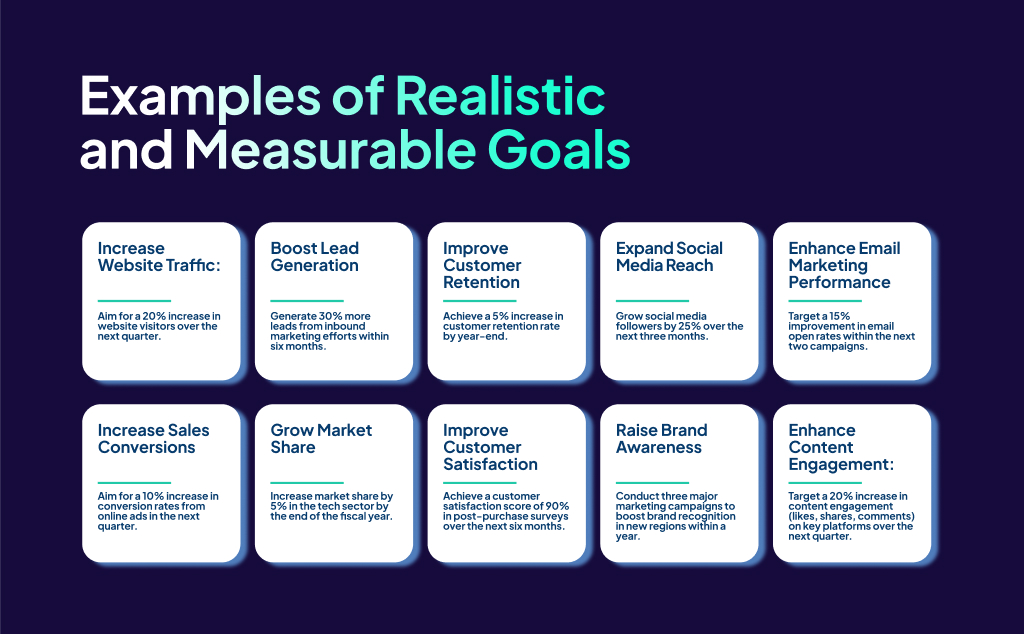A collaboration with a growth marketing agency is a strategic move for startup growth.
A structured approach ensures that the startup’s objectives align perfectly with the agency’s strategies, resulting in effective and efficient marketing campaigns.
The marketing agency onboarding process is about laying a solid foundation for communication, understanding the business’s unique challenges, and setting clear, achievable goals according to your brand guidelines.
By planning this initial stage with Azarian Growth Agency, a growth marketing agency, startups can expect a smoother transition, better collaboration, and more impactful marketing outcomes.
Besides relying on the agency to have an effective client onboarding process, startups, too, should have an organized onboarding process.
Here is every startup founder’s checklist to be sure of their growth marketing agency choice and optimize the marketing agency onboarding process for a successful partnership and tangible results.
Assessing Your Business’s Marketing Needs

Before hiring a growth marketing agency for startups and diving into their client onboarding processes, startups must thoroughly assess their marketing needs and client satisfaction criteria.
Digital marketing onboarding process involves pinpointing specific marketing challenges and establishing clear, measurable goals according to your branding guidelines.
For instance, a startup might struggle with low website traffic, lack of brand awareness, or poor conversion rates.
Once you’ve pinpointed these challenges during the digital marketing onboarding process and set concrete goals, the next step is to match them with the capabilities of growth marketing consultancy.
Detailed research and understanding of growth marketing solutions become key.
This approach guarantees that the agency’s strategies address your startup marketing needs and can help you reach your goals.
Check out the podcast episode on EVN Report, featuring Hamlet Azarian, CEO and Founder of Azarian Growth Agency, where he shares insights on startups’ sustainable success.
Researching and Selecting the Right Agency

Before the digital marketing onboarding process, let’s discuss an essential topic.
It’s not just about ticking boxes; it’s about finding a partner that really ‘gets’ your business and its unique challenges.
Choosing between in house marketing vs agency is a significant decision. In-house marketing teams offer more control and alignment with your company’s culture, while agencies bring experience and specialized skills.
If you’re weighing agency vs freelancer, remember that agencies typically offer more services and more comprehensive support, which is often crucial for startups looking to scale quickly. Freelancers might be more cost-effective for specific tasks but may lack the extensive resources and team support an agency can provide.
When it comes to the question “how to choose digital marketing agency,” consider the agency’s industry experience and its portfolio of case studies.
Industry experience ensures that the agency deeply understands your market’s unique challenges and opportunities, enabling them to craft innovative marketing strategies that resonate with your target audience.
On the other hand, case studies provide tangible evidence of the agency’s ability to deliver results. They showcase the agency’s problem-solving skills, creativity, and impact on growth for businesses like yours.
These case studies highlight the agency’s approach to overcoming obstacles, strategic thinking, and outcomes.
Together, industry experience and insightful case studies offer a comprehensive view of what the agency is capable of, helping you make an informed decision.
Growth marketing agencies stand out because they focus on driving continuous growth through innovative strategies and data-driven decisions.
These agencies often have extensive experience working with startups and can provide the expertise needed to navigate the complex landscape of growth marketing.
Establishing Clear Communication Channels During the Onboarding Process

The right tools can make all the difference in collaborating with growth marketing agencies.
During the marketing agency onboarding process, you might consider some startup-friendly, affordable, and user-friendly tools for smooth communication.
Here’s a tailored approach:
Establish Clear Communication Channels:
Tools: Slack for streamlined communication after the onboarding process (offers a free version suitable for small teams) and Microsoft Teams, a part of the widely used Microsoft Office Suite.
Define Contact Points:
Platforms: Zoom for reliable video calls (free tier available) and Google Contacts for efficient contact management.
Regular Updates and Meetings:
Scheduling: Google Calendar is for straightforward scheduling (free), and Doodle is for hassle-free coordination (offers a basic free plan) to make sure you are following the project timeline.
Document Everything:
Documentation: Google Docs and Sheets for real-time collaboration (free) and Evernote for organized note-taking (has a free version).
Set Clear Expectations and Goals:
Project Management Software: Trello (free basic plan) and Asana (offers a free tier for up to 15 members) are examples of project management tools for visual task management. These tools will help from the first steps of the collaboration up to the sales process.
Feedback Mechanism:
Feedback Tools: SurveyMonkey is for simple surveys (free basic plan), and Loom is for easy video feedback (free starter plan).
Cultural Alignment:
Cultural Tools: Discord is for casual, real-time team chats (free), and Basecamp Personal is a project management software for small teams or personal projects (free).
Transparency and Honesty:
Collaboration: ClickUp for transparent task tracking and Miro for collaborative brainstorming (free basic plan).
Utilize Collaborative Tools:
File Sharing and Management: Dropbox Basic for file storage (free tier available) and Airtable for versatile project tracking (free version for small teams).
Adapt and Evolve:
Adaptive Tools: Typeform is for engaging and interactive feedback collection (free version), and Monday.com is a flexible project management tool (offers a free trial).
Defining Goals and KPIs Together

Align Goals with Business Objectives: Ensure that the goals set for growth marketing consultancy align with your startup’s broader business objectives, creating a cohesive strategy that drives overall success.
Utilize SMART Criteria: Adopt the SMART framework for goal-setting, ensuring each goal is Specific, Measurable, Achievable, Relevant, and Time-bound, which helps create clear and actionable objectives.
Involve Key Stakeholders: Bring key growth marketing team members, like a growth marketing consultant, a growth marketing manager, and decision-makers into the goal-setting process to ensure everyone is on the same page and their insights and expectations are incorporated.
Analyze Past Performance: Review and consider your startup’s previous marketing efforts and outcomes via Google Analytics to set informed and achievable goals. This will help the agency to understand and manage client expectations.
Consider Market Trends: Stay informed about current market trends and industry shifts to be sure your strategies are relevant and forward-thinking.
Set Clear Benchmarks: Establish specific benchmarks or milestones within your goals to provide clear targets for your team and the marketing agency to aim for, making progress measurable.
Prioritize Goals: Rank your goals in order of importance or feasibility, allowing your team to focus on what’s most critical or achievable first.
Be Flexible and Realistic: Recognize that circumstances change, and be prepared to adjust your goals accordingly right in the digital marketing onboarding process, ensuring they remain realistic and attainable.

Regular Review Sessions: Schedule periodic review meetings to assess the progress towards your goals, allowing for timely adjustments and reinforcing accountability.
Encourage Team Input and Feedback: Create an open environment where team members can be on the same page and contribute their ideas and feedback on the goal-setting and achieving process.
Also, don’t forget to identify key performance indicators (KPIs) during the marketing agency onboarding process of a startup’s collaboration with a growth marketing agency is crucial for several reasons:
Sets a Baseline for Performance: KPIs provide a clear starting point to measure the success metrics from the beginning of the collaboration.
Aligns Expectations: They ensure that the startup and the agency have a mutual understanding of success, aligning expectations and objectives right from the start.
Guides Strategy Development: KPIs guide the development of marketing strategies by highlighting the most critical focus areas for achieving desired outcomes.
Facilitates Effective Communication: Having clear KPIs aids in transparent and objective communication between the startup and the agency, focusing discussions on measurable results.
Enables Early Adjustments: Regular tracking of KPIs allows for early detection of areas that may not be performing as expected, enabling timely adjustments to strategies.
Understanding the Agency’s Process and Methodology

Growth marketing agencies combine hands-on strategies to help businesses grow robustly and sustainably.
This digital marketing onboarding process starts with crafting engaging, valuable content that speaks directly to a specific audience, drawing them in.
Then, there’s the art of SEO – tweaking your website to stand out in search engine results to make it easier for potential customers to find you.
Social media is another key player; it creates connections, sparks conversations, and turns followers into website visitors.
Email campaigns are like the personal touch, sending tailored messages to keep leads interested and customers returning.
At the heart of it all is a practical, data-driven mindset, using real numbers to make decisions and measure how well things are working.
Trying out different versions of web pages or apps through A/B testing helps fine-tune user experiences.
When done right, paid advertising and influencer marketing can be a laser-focused way to attract more traffic and conversions.
Lastly, there’s always room for reviewing and improving your website to turn more visitors into active customers.
Here are questions to ask a growth agency to understand clearly how they will benefit your startup.
- How do you apply personalized marketing to different industries or business models?
- Can you provide examples of how you’ve used data to inform marketing strategies?
- What is your SEO and content marketing approach, and how do you measure their success?
- How do you integrate and leverage growth strategies into developing social media accounts?
- What email marketing tactics do you find most effective for engagement and conversion?
- How do you conduct A/B testing, and what metrics do you focus on?
- Can you share a successful case study involving influencer partnerships?
- What’s your approach to designing and managing referral programs?
- How do you determine the budget and strategy for paid advertising campaigns?
- What methods do you use for conversion rate optimization, and how do you track improvements?
Preparing Your Team for Agency Collaboration

Make sure your team is ready for the collaboration, as it’s both-sided progress and requires the full involvement of start-up members.
Streamline Workflows:
Set up efficient processes for task assignments, tracking progress, and meeting deadlines helps streamline team workflows.
Build Trust:
Build relationships based on mutual respect and understanding is vital. This includes fostering open dialogue among all parties involved.
Address Differences:
Be mindful of different perspectives, working styles, and levels of expertise. Acknowledge these differences in decision-making and strategy development.
Develop a Plan of Action:
Outline each step of your projects or campaigns from start to finish to keep all parties on the same page.
Foster Open Dialogue:
Encourage open communication at every integration stage to address issues promptly and build trust.
Set Realistic Expectations:
From the outset, ensure that both sides understand what is required for smooth collaboration, leading to better overall results.
Data Sharing and Privacy Considerations

As a startup founder, when sharing data with a marketing agency, it’s crucial to prioritize compliance with data protection and privacy laws.
Start by thoroughly understanding the laws and regulations like GDPR or CCPA that apply to your business.
When preparing data for sharing, anonymize or pseudonymize personal information to protect individual privacy.
Establish clear agreements with the agency about their client data management, storing, and processing the shared data.
Regularly audit the data handling practices of your startup and the agency to ensure ongoing compliance.
Always prioritize transparency with your partners about how your and their data is used and shared.
Reviewing and Finalizing the Onboarding Plan

Before finalizing the onboarding plan of a growth marketing agency, startups must review a checklist of critical items to ensure a smooth and effective collaboration.
First and foremost, it’s essential to establish clear roles and responsibilities.
This not only helps in setting expectations but also in preventing overlaps and gaps in efforts. Each party should know what they are accountable for.
Next, agreeing on specific, measurable goals and KPIs that align with the startup’s growth objectives is critical.
Another essential item is to outline detailed timelines and milestones, providing a roadmap for both parties to track progress and make timely adjustments.
It’s also advisable to discuss and agree upon communication protocols and meeting schedules to ensure a consistent and effective exchange of information.
Next, startups should review legal and contractual aspects to protect their interests, including confidentiality agreements, data handling policies, and service level agreements.
Lastly, clearly understanding the budget and billing procedures is vital to managing financial expectations and ensuring transparency.
Monitoring and Evaluating Agency Performance

The process of regularly assessing the agency’s performance begins with defining clear, measurable goals and key performance indicators (KPIs) that reflect the startup’s growth targets.
Regular meetings with the agency marketing manager should be scheduled to review these metrics, analyze campaign results, and discuss insights.
It’s essential to maintain an open line of communication for transparent feedback and constructive criticism.
Based on these evaluations, startups should work collaboratively with the agency to fine-tune strategies.
This may involve adjusting tactics based on what has been proven to work or exploring new avenues if certain approaches aren’t yielding the desired results.
The agility to adapt to feedback and results is not just a trait of a successful startup but also a hallmark of a productive partnership with a growth marketing agency.
This iterative process ensures that marketing efforts are continually optimized, driving sustained growth and adapting to the ever-evolving market landscape.
Planning for Long-Term Growth and Scaling

The foresight of focusing on immediate goals and strategically planning for future scaling involves anticipating market changes, evolving customer needs, and the scalability of current strategies.
In your discussions with the agency, emphasize the importance of developing a flexible and adaptable marketing plan that can grow with your startup.
This means setting long-term objectives that align with your vision for expansion, whether it’s entering new markets, diversifying product lines, or scaling operations.
Encourage the agency to regularly analyze market trends and competitor movements to stay ahead of the curve. It fosters a growth mindset.
It’s also crucial to build a marketing infrastructure that can support increased demands through technology, processes, or talent.
By embedding scalability into your marketing strategy from the outset, you can ensure that your growth efforts are successful in the short term and laying the foundation for sustainable long-term growth.
This proactive approach allows your startup and the agency to be on the same page and remain agile and responsive, turning potential challenges into opportunities.
Azarian Growth Agency: Your Reliable Growth Marketing Partner

Remember, marketing agency onboarding process is a big step. It needs a well-thought-out plan, constant check-ins, and long-term thinking.
If you are looking for a data-driven growth agency that will be your reliable partner in every aspect of growth marketing strategy, Azarian Growth Agency is here.
Our expertise in developing results-driven strategies in SEO, paid advertising, landing page optimization, social media marketing, content marketing for startups, and email marketing will guide your business through the complexities of market needs and adjustments.
Check out our website, where we share our collaborations with startups and bigger businesses.

